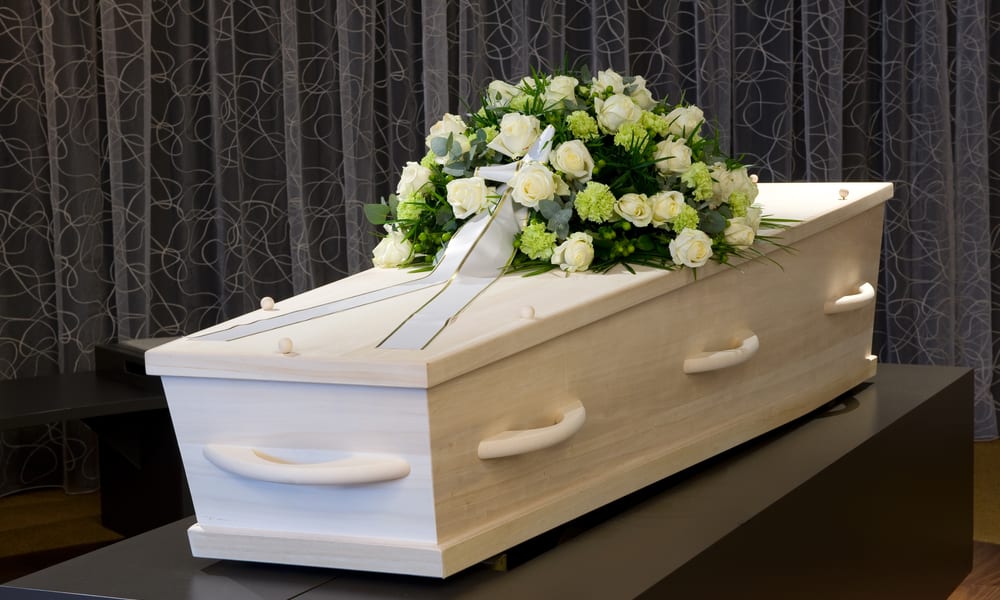Why More UK Pensioners Are Choosing Cremation Over Traditional Funerals
Cremation is quietly becoming the preferred choice for older adults across the UK. With fewer complications and more personal control, pensioners are rethinking how they want to be remembered. Here’s what’s driving the shift—and why it’s worth considering.

How Cremation Offers Simplicity and Dignity
Cremation services have evolved substantially from their earlier forms to offer ceremonies that maintain the dignity of traditional funerals while providing a simpler approach. For many UK pensioners, this simplicity is a key attraction. The process typically involves a shorter service that focuses on celebrating the person’s life rather than emphasizing elaborate rituals. Crematoriums across Britain now offer thoughtfully designed spaces where families can gather for meaningful ceremonies before the cremation takes place.
The dignity of cremation comes through its flexibility—allowing families to hold memorial services at times and locations that work best for scattered families, rather than rushing arrangements. Many crematoriums provide gardens of remembrance where ashes can be scattered or interred, creating peaceful spaces for reflection. This approach offers seniors peace of mind that their passing can be marked respectfully without imposing complex arrangements on their loved ones.
Why More Pensioners Are Planning Ahead
Forward planning for end-of-life arrangements has become increasingly common among UK pensioners, with cremation featuring prominently in these preparations. This proactive approach stems from several motivations, including the desire to ease the burden on family members during an already difficult time. By specifying cremation preferences and even prepaying for services, seniors eliminate difficult decisions their loved ones would otherwise face.
Financial foresight plays a significant role in this planning. Many pensioners recognize that funeral costs continue to rise, making prepaid cremation plans an attractive option for managing expenses. These plans lock in current prices, protecting against future inflation. The Royal London National Funeral Cost Index reveals that cremation typically costs substantially less than traditional burial, making it a pragmatic choice for those on fixed incomes or wanting to preserve their estates for beneficiaries.
Environmental consciousness also influences planning decisions. A growing segment of environmentally-aware seniors choose cremation with specific instructions for biodegradable urns or woodland ash scattering, reflecting their values even after death.
Benefits of Cremation for Families and Loved Ones
The advantages of cremation extend beyond the individual to benefit families navigating the difficult period of bereavement. Perhaps most significantly, cremation offers flexibility in timing that traditional burials cannot match. Families can arrange memorial services weeks or even months after the cremation, allowing distant relatives to make travel arrangements and participate fully in commemorating their loved one.
Cremation also provides families with more options for maintaining a connection with the deceased. Whether keeping ashes in a meaningful urn at home, scattering them in a special location, or dividing them among family members, these choices can provide comfort during the grieving process. Some families create memorial jewelry containing small portions of ashes, while others incorporate ashes into living memorials like tree plantings.
The reduced financial strain on families represents another significant benefit. With burial costs continuing to rise—particularly in areas where cemetery space is limited—cremation offers a more affordable alternative that doesn’t compromise on providing a dignified farewell.
Real Stories from Seniors Who Chose Cremation
Margaret Williams, 78, from Norfolk, decided on cremation after attending several traditional funerals that felt, in her words, “unnecessarily formal and lacking personal touches.” She has arranged for a simple service featuring her favorite classical music and readings chosen by her grandchildren. “I don’t want a somber occasion,” she explains. “I’d rather my family celebrate the good times we’ve had together.”
Retired teacher Alan Thompson, 81, from Edinburgh, was influenced by practical considerations. “My children are scattered across three continents,” he notes. “Cremation means they can gather when it works for everyone, not when a burial has to happen.” He has arranged for his ashes to be scattered in the Scottish hills where he spent many happy weekends hiking.
For Sheila and Robert Davies from Cardiff, both in their early 70s, environmental concerns guided their decision. “We’ve tried to live thoughtfully regarding our environmental impact,” Sheila explains. “It didn’t make sense to abandon those principles in our final arrangements.” They’ve chosen cremation with biodegradable urns that will nurture memorial trees in a woodland burial ground.
Understanding Cremation Costs and Options in the UK
Cremation services in the UK vary considerably in terms of cost and offerings. Direct cremation—which separates the cremation process from the memorial service—has become increasingly popular as an affordable option. This approach allows families to hold personalized memorial events at locations meaningful to them, rather than at the crematorium.
| Cremation Type | Average UK Cost | What’s Typically Included |
|---|---|---|
| Direct Cremation | £1,100 - £1,800 | Collection of deceased, simple coffin, cremation, return of ashes |
| Simple Cremation | £1,600 - £3,000 | Basic service at crematorium, standard coffin, some transport |
| Traditional Cremation | £3,000 - £4,500 | Full funeral service, higher quality coffin, limousines, viewing options |
| Premium Cremation | £4,500+ | Premium coffin, extensive transport, additional services, memorial items |
Prices, rates, or cost estimates mentioned in this article are based on the latest available information but may change over time. Independent research is advised before making financial decisions.
Regional variations significantly affect costs, with London and the Southeast typically being the most expensive regions for cremation services. Many funeral directors offer payment plans and packages tailored to different budgets, while local authorities sometimes provide assistance for those facing financial hardship.
Conclusion
The trend toward cremation among UK pensioners reflects a convergence of practical, financial, environmental, and personal considerations. This shift represents not merely a change in funeral practices but an evolution in how seniors approach end-of-life planning—with greater emphasis on personal choice, simplicity, and consideration for loved ones. As cremation continues to grow in popularity, service providers are responding with more personalized options that honor individual wishes while maintaining the dignity essential to marking life’s final transition.




